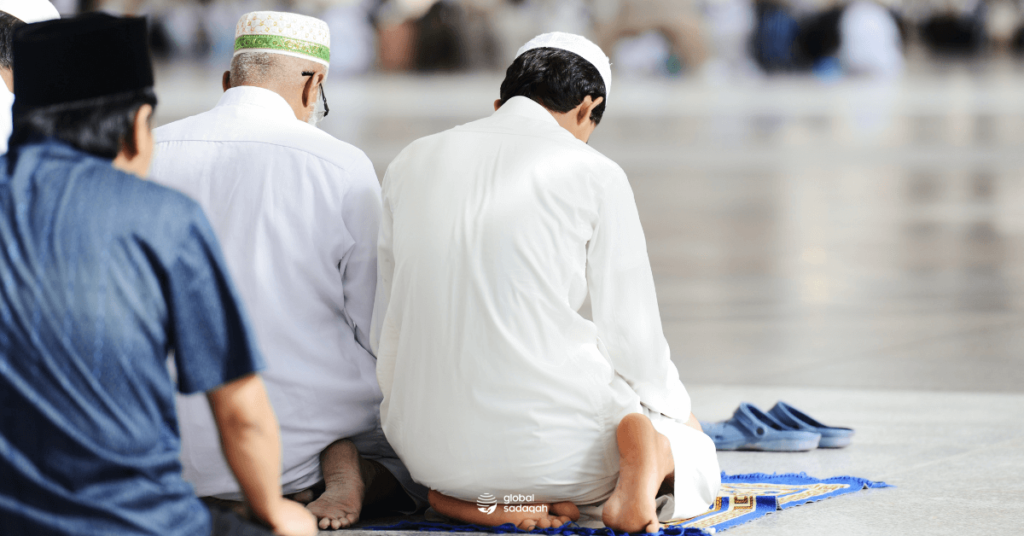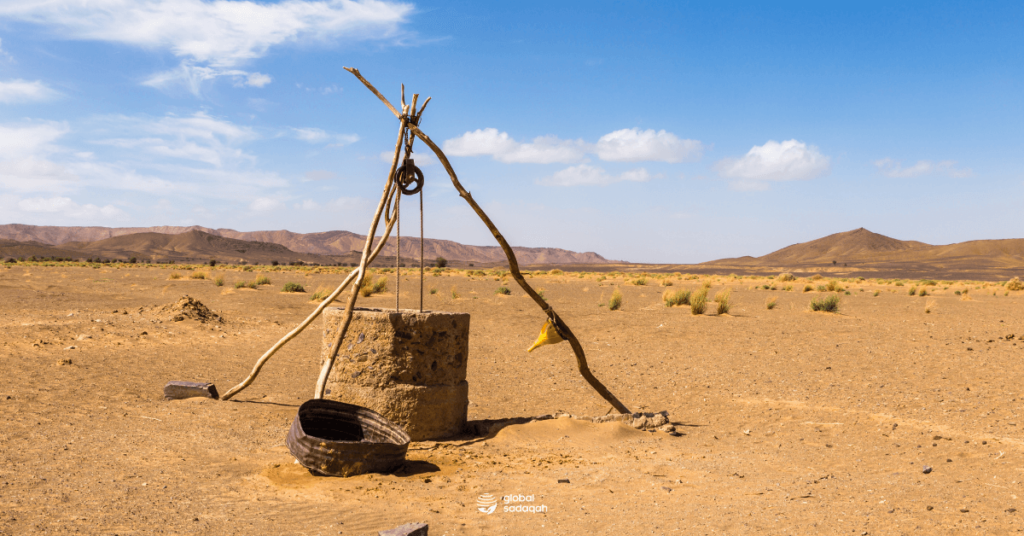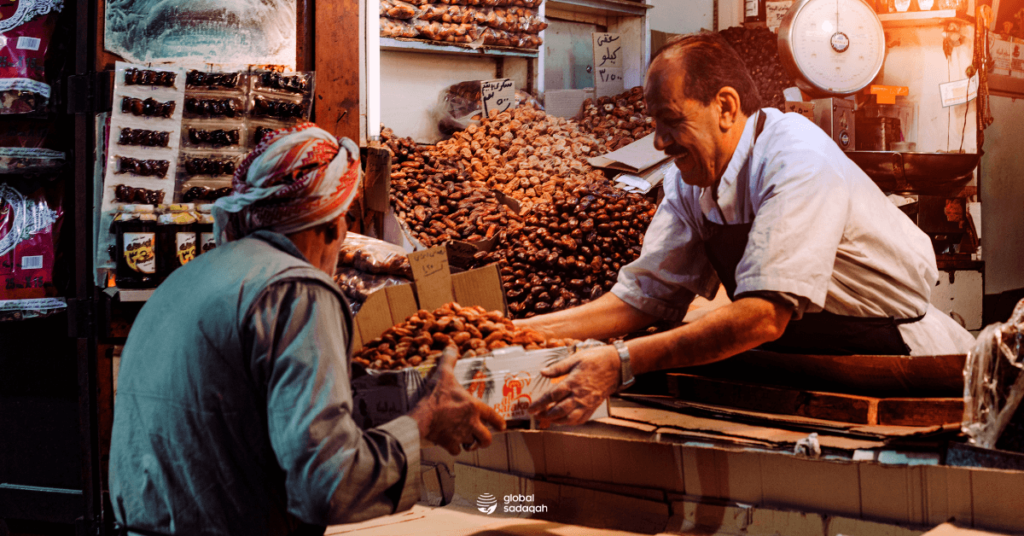Allah loves those who do good, “And do good, for Allah certainly loves the good-doers” (Qur’an 2: 195), and giving sadaqah is part of it. It’s one of the practices that Allah repeatedly emphasised in the Qur’an after salah (prayers). In fact, the word ‘sadaqah’, and its plural ‘sadaqat’, are mentioned 12 times in the Qur’an. It covers all kinds of charity, including voluntary efforts, kind words, monetary forms, as well as the benefits that its doers will receive.
Related: Analyzing Zakat In The Quran
The Prophet ﷺ himself, who is the best role model for humankind, was also big on giving sadaqah. Ibn ‘Abbas described the Prophet ﷺ as the most generous of men, more generous than the wind which blows freely. (Bukhari and Muslim).
Let’s take a look at the 7 benefits of giving sadaqah, as described in the Qur’an and Sunnah.
1) Allah multiplies your sadaqah by 700-fold
Allah is indeed the Most Generous. He promised to multiply your rewards by 700-fold, or even more for whom He wills when you give sadaqah for the sake of Allah.
“The example of those who spend their wealth in the way of Allah is like a seed [of grain] which grows seven spikes; in each spike is a hundred grains. And Allah multiplies [His reward] for whom He wills. And Allah is all-Encompassing and Knowing. (Qur’an 2: 261)
2) Those who regularly give sadaqah will be called to enter Jannah from Baab as-Sadaqah
Jannah is the ultimate destination of our life after death. It is every Muslim’s dream to enter Jannah. We learn from the prophetic narrations that Jannah has eight doors or gates. Those who believe in tawheed (the oneness of Allah) and adhere to the teachings of Islam will have the privilege to enter Jannah from any doors they wish.
Those who regularly give sadaqah in the way of Allah, be it in the form of services, kind words, or monetary gifts, to their family, orphans, or those in need, will be called to enter Jannah through a special door called the Baab as-Sadaqah (the door of sadaqah).
The Prophet ﷺ said, “Anybody who spends a pair of something in the cause of Allah will be called from all the gates of Paradise, ‘O Allah’s slave! This is good.’ He who is amongst those who pray will be called from the gate of the prayer (in Paradise) and he who is from the people of Jihad will be called from the gate of Jihad, and he who is from those who give in charity will be called from the gate of charity, and he who is amongst those who observe fast will be called from the gate of fasting, the gate of Raiyan.” (Sahih Bukhari)
Related: Become a Global Guardian and join us in circulating good across the globe!
3) Giving sadaqah helps Muslims to achieve taqwa
Allah said in the Qur’an, “The most noble of you in the sight of Allah is the most righteous (taqwa) among you.” (Qur’an 49: 13) But what is taqwa? Sayyidina Ali RA defined taqwa as ‘the fear of Allah, acting upon the tanzeel (the book revealed), being content with qaleel (little) and preparing oneself for the hereafter.’
It is taqwa or the fear of Allah that propels Muslims to obey Allah’s commands and keeps them from doing evils and what is forbidden. By giving sadaqah, we are able to achieve taqwa, and become the noblest in the eyes of Allah.
“You will never achieve taqwa until you donate some of what you cherish. And whatever you give is certainly well known to Allah.” (Qur’an 3: 92)

4) There shall be no fear for those who give sadaqah, nor shall they grieve
Have you ever imagined how you would fare before Allah on the day of judgement? We fear our sins will come haunting us down, our body parts will expose our wrongdoings and our friends and families will turn their back on us.
But Allah assures those who spend their wealth in the way of Allah that they will not have fear or grief, and their reward is with Allah. It is the assurance and protection that our souls will need once we experience life after death.
“Those who spend their wealth in charity day and night, secretly and openly—their reward is with their Lord, and there will be no fear for them, nor will they grieve.” (Qur’an 2: 274)
Related: The Impact of Zakat in Muslim Society
5) Sadaqah extinguishes our sins just like water extinguishes fire
It’s also comforting to know that the sadaqah we give during our lifetime will help expiate our sins. The Prophet ﷺ explained this in a hadith that describes one of the benefits of giving sadaqah.
Narrated by Ka’b bin Ujrah, the Prophet ﷺ said, “Salat is clear proof, and Sawm (fasting) is an impregnable shield, and Sadaqah (charity) extinguishes sins just as water extinguishes fire.” (Tirmidhi).
6) Those who give sadaqah so secretly will be among those shaded by Allah on the day of judgement
On the day of judgement, there will be no shade except the shade of Allah. Those who give sadaqah in secret that his left hand does not even know what his right hand has given are so beloved by Allah that Allah will shade them by His Shade, among seven other people.
The Prophet ﷺ said, “Seven (people) will be shaded by Allah by His Shade on the Day of Resurrection when there will be no shade except His Shade.
(They will be), a just ruler, a young man who has been brought up in the worship of Allah, a man who remembers Allah in seclusion and his eyes are then flooded with tears, a man whose heart is attached to mosques (offers his compulsory congregational prayers in the mosque), two men who love each other for the sake of Allah, a man who is called by a charming lady of noble birth to commit illegal sexual intercourse with her, and he says, ‘I am afraid of Allah,’ and (finally), a man who gives in charity so secretly that his left hand does not know what his right hand has given.” (Sahih Bukhari)
7) Sadaqah jariyah is one of the three good deeds that outlasts death
We are created to worship Allah. From Allah we come, and to Him, we shall return. When we die, we will leave everything we have in this world behind. All our good deeds will also come to an end except three: ‘Sadaqah jariyah, beneficial knowledge and a righteous son who prays for him.’ (Sunan an-Nasa’i)
The beauty of offering sadaqah jariyah, a continuous and ongoing charity, is that the rewards remain for as long as it is used. It’s one of the three good deeds that outlasts death. Examples of sadaqah jariyah include partaking in the building of a mosque, a school, a well, among others, planting trees and giving one a copy of the Qur’an.
Related: Good Deeds that Outlast Death | 5 Types of Sadaqah Jariyah

In sum, giving sadaqah is a good deed and a beautiful act that is highly encouraged in Islam. The rewards that its doers will receive are bountiful. Contrary to a certain mindset, giving sadaqah will not deplete one’s wealth. In fact, it’s the opposite. The more you give for the sake of Allah, the more you will receive, both in this world and in the hereafter.
“O you who believe! Donate from what We have provided for you before the arrival of a Day when there will be no bargaining, friendship, or intercession.” (Qur’an 2: 254)
Donate to causes that are close to your heart and resonate with you via GlobalSadaqah.

